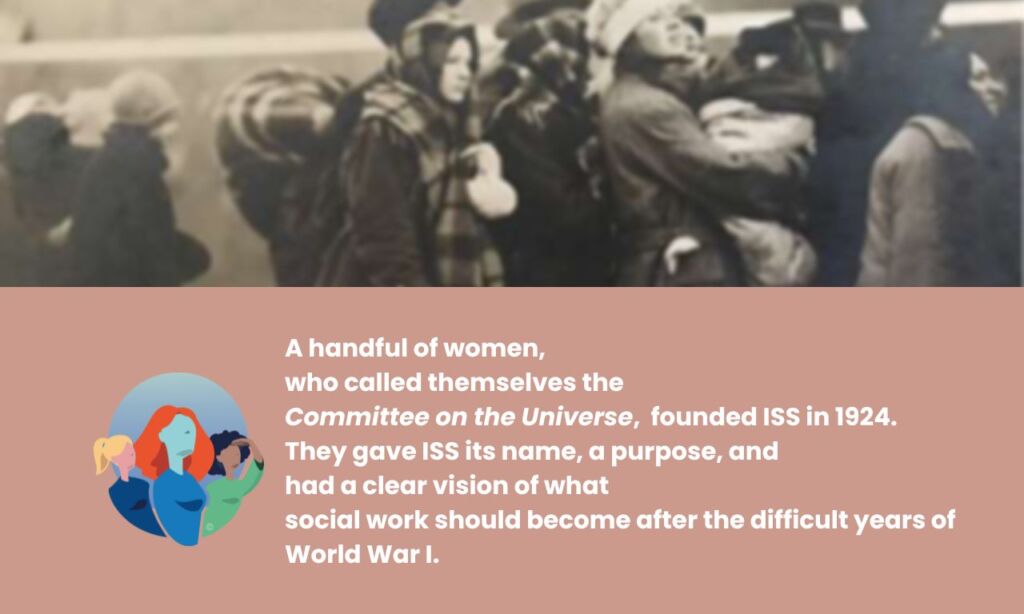
The ‘Committee on the Universe’: a story about the founding women of ISS.
- Written by: Ana Maria Banos, 3rd year International Relations and Communications Student at University Pontificia Comillas Madrid
- Women explorers
A handful of women founded ISS, gave it a name, a purpose, and had a clear vision of what social work should become after the difficult years of World War I.
The first World War became the first war in which, for the first time, there was international involvement and concern from several countries. This war brought economic upheaval and starvation, affecting the lives of civilians in many countries, and overall took the lives of 16 million people. The Great War provided a space for deep concern from several countries and international involvement about the millions of people fleeing their countries and looking for a better life elsewhere.
At the time, no one referred to it as World War I. Though, soon enough, the realities of the war and its aftermath became the source of a revolutionary period in which people contemplated and rethought the world they lived in. Various philanthropic organizations and social workers started to see new issues that needed to be addressed such as displacement, deportation, forced migration and the separation of families and children. These challenges needed to be looked at through a different scope, one that went beyond the borders of a country.
In the 1920s, there was a rise of international humanitarian work, and in this same period, the International Social Service was created.
ISS (previously known as International Migration Service) was a significant actor during this time and continues to be relevant nowadays. ISS was co-founded by several female social workers from the UK, USA, Norway and Sweden, who manifested their desire and the need to provide humanitarian work beyond the borders of a country with new topics such as the cross border movement of people.
Three women in particular set the vision for ISS namely Mary Hurlbutt, Ruth Lamed and Suzanne Ferrière who playfully referred to themselves as the Committee on the Universe. The Committee on the Universe signaled the need to put international interests above national interests. Their ambition was to establish an organization that would aid families and children across the globe, an expansion of what being a social worker entailed and was conceived at the time. They believed that migration, whether it was forced or free, produced a new form of suffering that had to be recognized, namely the breaking of family ties by distance and borders. This became the core principle and propelling force that directed ISS work.
100 years after its creation, ISS has expanded its actions across several continents, present in more than 120 countries, aiding families all around the world. ISS continues to be needed to respond to the migratory challenges of an ever connected constantly changing world.
Source:
Banu, Roxana. “Forgotten Female Actors in Private International Law”. In: Portraits of Women in International Law. Edited by: Immi Tallgren, Oxford University Press. 2023.